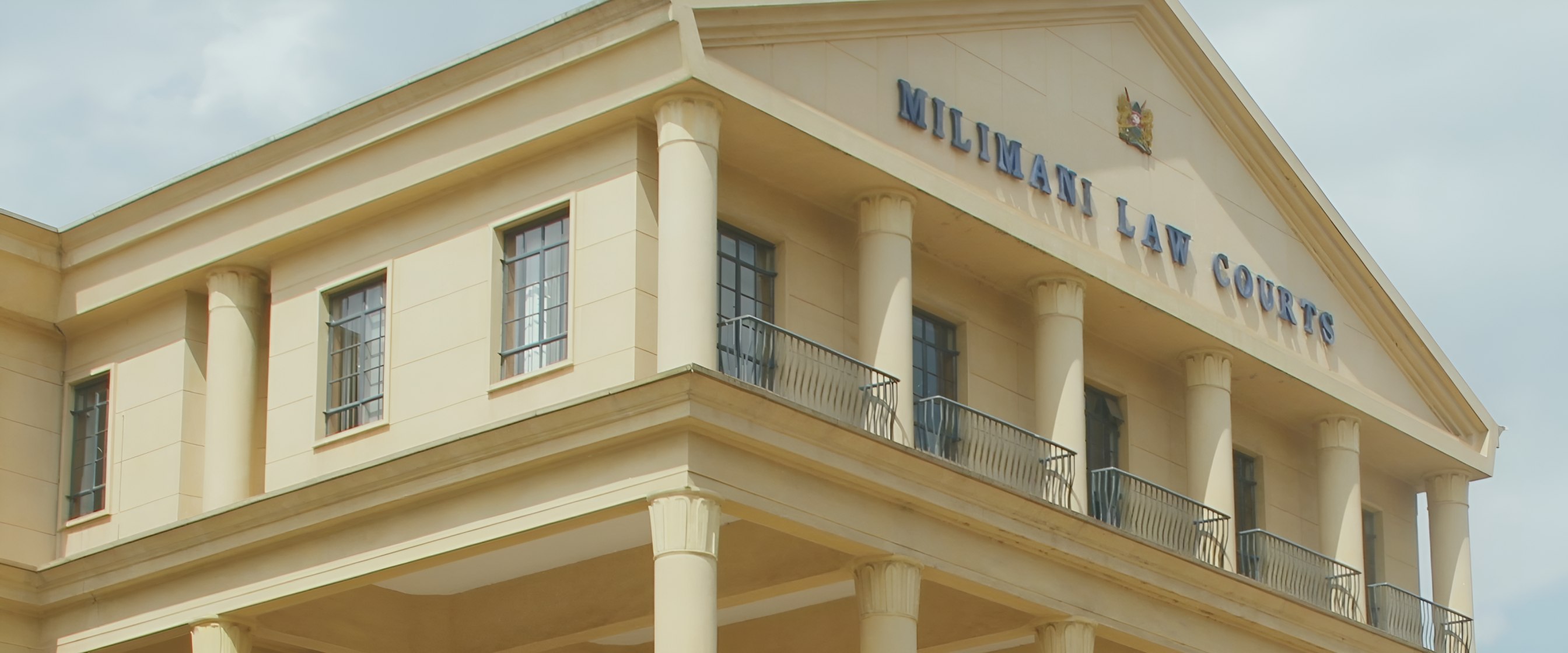The push by digital content creators to stop the government’s ban on online alcohol advertising has suffered a setback after the High Court declined to issue temporary orders suspending the directive.
In a ruling delivered on Tuesday, Justice Bahati Mwamuye said the court would not stop the enforcement of the National Policy for the Prevention, Management and Control of Alcohol, Drugs and Substance Abuse (2025) before hearing the full petition.
This means Clause 6.5.2 of the policy, which prohibits digital alcohol advertising and influencer marketing, will remain in force for now.
The case, filed by content creators Fidel Shammah Omusula and Brian Muthengi Kimanzi, will be mentioned on October 6 for further directions.
Omusula and Kimanzi had moved to court seeking interim conservatory orders to stop the implementation of the ban, arguing that it was introduced without public input, violates the Constitution, and threatens the livelihoods of thousands of young people working in the digital space.
Despite their plea, the judge refused to suspend the policy, instead directing that Interior Cabinet Secretary Kipchumba Murkomen, Attorney General Dorcas Oduor, the National Authority for the Campaign Against Alcohol and Drug Abuse (NACADA), and the Law Society of Kenya be formally served with the court papers.
“The respondents (CS Interior, the AG and NACADA) and the interested party (LSK) shall enter appearance and file and serve their respective responses to both the application and the petition by close of business August 29, 2025,” ruled Justice Mwamuye.
“Mention on October 6, 2025, to confirm compliance and to take further directions on the expedited hearing and determination of the Application and/or the Petition.”
The decision has dealt a blow to Kenya’s digital creators, many of whom have relied on paid alcohol promotions and partnerships to earn a living.
In their petition, the two argue that the policy introduced on July 30, 2025, is not only unfair but unconstitutional. They accuse the government of bypassing public consultation, saying it failed to involve content creators, advertisers, and other affected groups.
“Pending the inter partes hearing and determination of this application, a conservatory order be issued staying the implementation, enforcement, or operationalization of the National Policy for the Prevention, Management & Control of Alcohol, Drugs & Substance Abuse (2025),” the petitioners urged the court.
“If the Court does not act now, the policy will cause irreparable harm to us and thousands of Kenyans who rely on brand partnerships for their survival. It will render this case useless if damage is already done,” said Omusula.
The policy, spearheaded by the Interior Ministry and NACADA, outlines strict rules on how alcohol can be marketed and sold. It includes bans on selling alcohol in supermarkets, restaurants, online platforms, public beaches, bus stops, residential areas, public transport, and recreational spaces.
It also sets 21 years as the new legal drinking age, replacing the previous limit of 18, and prohibits the delivery of alcohol to homes by vendors — a popular service in cities.
The rules further restrict alcohol advertising near schools and introduce a blanket ban on digital influencer marketing linked to alcoholic products.
While the government argues that the new measures are aimed at protecting young people from rising substance abuse, the petitioners insist that the law goes too far and violates key constitutional freedoms.
“We were not consulted, yet we are directly affected. The policy was imposed without hearing from content creators, advertisers, or the digital community,” Omusula states in his affidavit.
Their lawyer, Joseph Makau, told the court that the ban unfairly targets young digital entrepreneurs who use social media for economic gain. He termed the ban a form of economic discrimination that violates several constitutional provisions.
“The government cannot legislate in darkness. You cannot take away livelihoods in the name of public health without engaging stakeholders,” said Makau.
The petitioners argue that the policy, particularly Clause 6.5.2, criminalises lawful income-generating activity and infringes on the freedom of expression (Article 33), access to information (Article 35), economic rights (Article 43), consumer rights (Article 46), and the right to fair administrative action (Article 47).
“This is a direct attack on the digital economy. Thousands of young Kenyans earn a legitimate income through digital platforms. To shut this down overnight, without consultation or due process, is both reckless and unlawful,” said Kimanzi.
